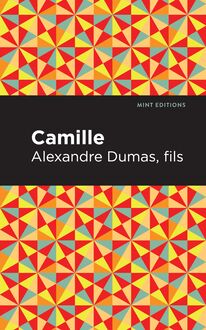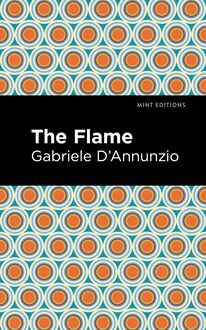-
 Univers
Univers
-
 Ebooks
Ebooks
-
 Livres audio
Livres audio
-
 Presse
Presse
-
 Podcasts
Podcasts
-
 BD
BD
-
 Documents
Documents
-
- Cours
- Révisions
- Ressources pédagogiques
- Sciences de l’éducation
- Manuels scolaires
- Langues
- Travaux de classe
- Annales de BEP
- Etudes supérieures
- Maternelle et primaire
- Fiches de lecture
- Orientation scolaire
- Méthodologie
- Corrigés de devoir
- Annales d’examens et concours
- Annales du bac
- Annales du brevet
- Rapports de stage
La lecture à portée de main
Vous pourrez modifier la taille du texte de cet ouvrage
Découvre YouScribe en t'inscrivant gratuitement
Je m'inscrisDécouvre YouScribe en t'inscrivant gratuitement
Je m'inscrisEn savoir plus
Vous pourrez modifier la taille du texte de cet ouvrage
En savoir plus

Description
Scenes of Bohemian Life (1851) is a novel by Henri Murger. Written at the beginning of his career as a popular French poet and novelist, Scenes of Bohemian Life is composed of vignettes inspired by the author’s experience as a starving artist in Paris’ Latin Quarter. Adapted countless times for theater and film, Murger’s novel served as inspiration for Puccini’s opera La bohème (1896) and for the hit musical Rent (1996). “The Bohemians know everything and go everywhere, according as they have patent leather pumps or burst boots. They are to be met one day leaning against the mantel-shelf in a fashionable drawing room, and the next seated in the arbor of some suburban dancing place. They cannot take ten steps on the Boulevard without meeting a friend, and thirty, no matter where, without encountering a creditor.” Distinguished by their sense of fashion and impoverished lifestyle, Paris’ Bohemians are part of a historical avant-garde, a cultural phenomenon found in any artistic society. Living day to day, these artists and radicals commune with the world as it is, taking nothing and no one for granted. In Scenes of Bohemian Life, four friends—Rodolphe, Marcel, Colline, and Schaunard—avoid landlords and old lovers on the streets of the Latin Quarter, a district known for its countercultural figures. Hilarious and preeminently human, Scenes of Bohemian Life is a masterpiece of nineteenth century fiction from a writer whose lifestyle informed much of his work. With a beautifully designed cover and professionally typeset manuscript, this edition of Henri Burger’s Scenes of Bohemian Life is a classic of French literature reimagined for modern readers.
Sujets
Informations
| Publié par | Mint Editions |
| Date de parution | 28 mai 2021 |
| Nombre de lectures | 0 |
| EAN13 | 9781513295169 |
| Langue | English |
Informations légales : prix de location à la page 0,0500€. Cette information est donnée uniquement à titre indicatif conformément à la législation en vigueur.
Extrait
Scenes of Bohemian Life
Henri Murger
Scenes of Bohemian Life was first published in 1888.
This edition published by Mint Editions 2021.
ISBN 9781513292311 | E-ISBN 9781513295169
Published by Mint Editions®
minteditionbooks .com
Publishing Director: Jennifer Newens
Design & Production: Rachel Lopez Metzger
Project Manager: Micaela Clark
Typesetting: Westchester Publishing Services
T ABLE OF C ONTENTS P REFACE I. H OW T HE B OHEMIAN C LUB W AS F ORMED II. A G OOD A NGEL III. L ENTEN L OVES IV. A LI R ODOLPHE ; O R , T HE T URK P ERFORCE V. T HE C ARLOVINGIAN C OIN VI. M ADEMOISELLE M USETTE VII. T HE B ILLOWS OF P ACTOLUS VIII. T HE C OST O F A F IVE F RANC P IECE IX. T HE W HITE V IOLETS X. T HE C APE OF S TORMS XI. A B OHEMIAN C AFE XII. A B OHEMIAN “A T H OME ” XIII. T HE H OUSE W ARMING XIV. M ADEMOISELLE M IMI XV. D ONEC G RATUS XVI. T HE P ASSAGE OF THE R ED S EA XVII. T HE T OILETTE OF THE G RACES XVIII. F RANCINE ’ S M UFF XIX. M USETTE ’ S F ANCIES XX. M IMI IN F INE F EATHER XXI. R OMEO AND J ULIET XXII. E PILOGUE T O T HE L OVES O F R ODOLPHE A ND M ADEMOISELLE M IMI XXIII. Y OUTH I S F LEETING
P REFACE
T he Bohemians of whom it is a question in this book have no connection with the Bohemians whom melodramatists have rendered synonymous with robbers and assassins. Neither are they recruited from among the dancing-bear leaders, sword swallowers, gilt watch-guard vendors, street lottery keepers and a thousand other vague and mysterious professionals whose main business is to have no business at all, and who are always ready to turn their hands to anything except good.
The class of Bohemians referred to in this book are not a race of today, they have existed in all climes and ages, and can claim an illustrious descent. In ancient Greece, to go no farther back in this genealogy, there existed a celebrated Bohemian, who lived from hand to mouth round the fertile country of Ionia, eating the bread of charity, and halting in the evening to tune beside some hospitable hearth the harmonious lyre that had sung the loves of Helen and the fall of Troy. Descending the steps of time modern Bohemia finds ancestors at every artistic and literary epoch. In the Middle Ages it perpetuates the Homeric tradition with its minstrels and ballad makers, the children of the gay science, all the melodious vagabonds of Touraine, all the errant songsters who, with the beggar’s wallet and the trouvere’s harp slung at their backs, traversed, singing as they went, the plains of the beautiful land where the eglantine of Clemence Isaure flourished.
At the transitional period between the days of chivalry and the dawn of the Renaissance, Bohemia continued to stroll along all the highways of the kingdom, and already to some extent about the streets of Paris. There is Master Pierre Gringoire, friend of the vagrants and foe to fasting. Lean and famished as a man whose very existence is one long Lent, he lounges about the town, his nose in the air like a pointer’s, sniffing the odor from kitchen and cook shop. His eyes glittering with covetous gluttony cause the hams hung outside the pork butcher’s to shrink by merely looking at them, whilst he jingles in imagination—alas! and not in his pockets—the ten crowns promised him by the echevins in payment of the pious and devout fare he has composed for the theater in the hall of the Palais de Justice. Beside the doleful and melancholy figure of the lover of Esmeralda, the chronicles of Bohemia can evoke a companion of less ascetic humor and more cheerful face—Master Fran ç ois Villon, par excellence, is this latter, and one whose poetry, full of imagination, is no doubt on account of those presentiments which the ancients attributed to their fates, continually marked by a singular foreboding of the gallows, on which the said Villon one day nearly swung in a hempen collar for having looked too closely at the color of the king’s crowns. This same Villon, who more than once outran the watch started in his pursuit, this noisy guest at the dens of the Rue Pierre Lescot, this spunger at the court of the Duke of Egypt, this Salvator Rosa of poesy, has strung together elegies the heartbreaking sentiment and truthful accents of which move the most pitiless and make them forget the ruffian, the vagabond and the debauchee, before this muse drowned in her own tears.
Besides, amongst all those whose but little known work has only been familiar to men for whom French literature does not begin the day when “Malherbe came,” Fran ç ois Villon has had the honor of being the most pillaged, even by the big-wigs of modern Parnassus. They threw themselves upon the poor man’s field and coined glory from his humble treasure. There are ballads scribbled under a penthouse at the street corner on a cold day by the Bohemian rhapsodist, stanzas improvised in the hovel in which the “belle qui fut haultmire” loosened her gilt girdle to all comers, which now-a-days metamorphosed into dainty gallantries scented with musk and amber, figure in the armorial bearing enriched album of some aristocratic Chloris.
But behold the grand century of the Renaissance opens, Michaelangelo ascends the scaffolds of the Sistine Chapel and watches with anxious air young Raphael mounting the steps of the Vatican with the cartoon of the Loggie under his arm. Benvenuto Cellini is meditating his Perseus, Ghiberti is carving the Baptistery doors at the same time that Donatello is rearing his marbles on the bridges of the Arno; and whilst the city of the Medici is staking masterpieces against that of Leo X and Julius II, Titian and Paul Veronese are rendering the home of Doges illustrious. Saint Mark’s competes with Saint Peter’s.
This fever of genius that had broken out suddenly in the Italian peninsula with epidemic violence spreads its glorious contagion throughout Europe. Art, the rival of God, strides on, the equal of kings. Charles V stoops to pick up Titian’s brush, and Francis I dances attendance at the printing office where Etienne Dolet is perhaps correcting the proofs of “Pantagruel.”
Amidst this resurrection of intelligence, Bohemia continued as in the past to seek, according to Balzac’s expression, a bone and a kennel. Clement Marot, the familiar of the ante-chamber of the Louvre, became, even before she was a monarch’s mistress, the favorite of that fair Diana, whose smile lit up three reigns. From the boudoir of Diane de Poitiers, the faithless muse of the poet passed to that of Marguerite de Valois, a dangerous favor that Marot paid for by imprisonment. Almost at the same epoch another Bohemian, whose childhood on the shores of Sorrento had been caressed by the kisses of an epic muse, Tasso, entered the court of the Duke of Ferrara as Marot had that of Francis I. But less fortunate than the lover of Diane and Marguerite, the author of “Jerusalem Delivered” paid with his reason and the loss of his genius the audacity of his love for a daughter of the house of Este.
The religious contests and political storms that marked the arrival of Medicis in France did not check the soaring flight of art. At the moment when a ball struck on the scaffold of the Fontaine des Innocents Jean Goujon who had found the Pagan chisel of Phidias, Ronsard discovered the lyre of Pindar and founded, aided by his pleiad, the great French lyric school. To this school succeeded the reaction of Malherbe and his fellows, who sought to drive from the French tongue all the exotic graces that their predecessors had tried to nationalize on Parnassus. It was a Bohemian, Mathurin Regnier, who was one of the last defenders of the bulwarks of poetry, assailed by the phalanx of rhetoricians and grammarians who declared Rabelais barbarous and Montaigne obscure. It was this same cynic, Mathurin Regnier, who, adding fresh knots to the satiric whip of Horace, exclaimed, in indignation at the manners of his day, “Honor is an old saint past praying to.”
The roll call of Bohemia during the seventeenth century contains a portion of the names belonging to the literature of the reigns of Louis XIII and Louis XIV, it reckons members amongst the wits of the H ô tel Rambouillet, where it takes its share in the production of the “Guirlande de Julie,” it has its entries into the Palais Cardinal, where it collaborates, in the tragedy of “Marianne,” with the poet-minister who was the Robespierre of the monarchy. It bestrews the couch of Marion Delorme with madrigals, and woos Ninon de l’Enclos beneath the trees of the Place Royal; it breakfasts in the morning at the tavern of the Goinfres or the Epee Royale, and sups in the evening at the table of the Duc de Joyeuse; it fights duels under a street lamp for the sonnet of Urania against the sonnet of Job. Bohemia makes love, war, and even diplomacy, and in its old days, weary of adventures, it turns the Old and New Testament into poetry, figures on the list of benefices, and well nourished with fat prebendaryships, seats itself on an episcopal throne, or a chair of the Academy, founded by one of its children.
It was in the transition period between the sixteenth and eighteenth centuries that appeared those two lofty geniuses, whom each of the nations amongst which they lived opposed to one another in their struggles of literary rivalry. Moliere and Shakespeare, those illustrious Bohemians, whose fate was too nearly akin.
The most celebrated names of the literature of the eighteenth century are also to be found in the archives of Bohemia, which, amongst the glorious ones of this epoch, can cite Jean Jacques Rousseau and d’Alembert, the foundling of the porch of Notre Dame, and amongst the obscure, Malfil â tre and Gilbert, two overrated reputations, for the inspiration of the one was but a faint reflection of the weak lyricism of Jean Baptiste Rousseau, and the inspiration of the other but the blending of proud impotence with a hatred which had not even the excuse of initiative and sincerity, since i
-
 Univers
Univers
-
 Ebooks
Ebooks
-
 Livres audio
Livres audio
-
 Presse
Presse
-
 Podcasts
Podcasts
-
 BD
BD
-
 Documents
Documents
-
Jeunesse
-
Littérature
-
Ressources professionnelles
-
Santé et bien-être
-
Savoirs
-
Education
-
Loisirs et hobbies
-
Art, musique et cinéma
-
Actualité et débat de société
-
Jeunesse
-
Littérature
-
Ressources professionnelles
-
Santé et bien-être
-
Savoirs
-
Education
-
Loisirs et hobbies
-
Art, musique et cinéma
-
Actualité et débat de société
-
Actualités
-
Lifestyle
-
Presse jeunesse
-
Presse professionnelle
-
Pratique
-
Presse sportive
-
Presse internationale
-
Culture & Médias
-
Action et Aventures
-
Science-fiction et Fantasy
-
Société
-
Jeunesse
-
Littérature
-
Ressources professionnelles
-
Santé et bien-être
-
Savoirs
-
Education
-
Loisirs et hobbies
-
Art, musique et cinéma
-
Actualité et débat de société
- Cours
- Révisions
- Ressources pédagogiques
- Sciences de l’éducation
- Manuels scolaires
- Langues
- Travaux de classe
- Annales de BEP
- Etudes supérieures
- Maternelle et primaire
- Fiches de lecture
- Orientation scolaire
- Méthodologie
- Corrigés de devoir
- Annales d’examens et concours
- Annales du bac
- Annales du brevet
- Rapports de stage


















